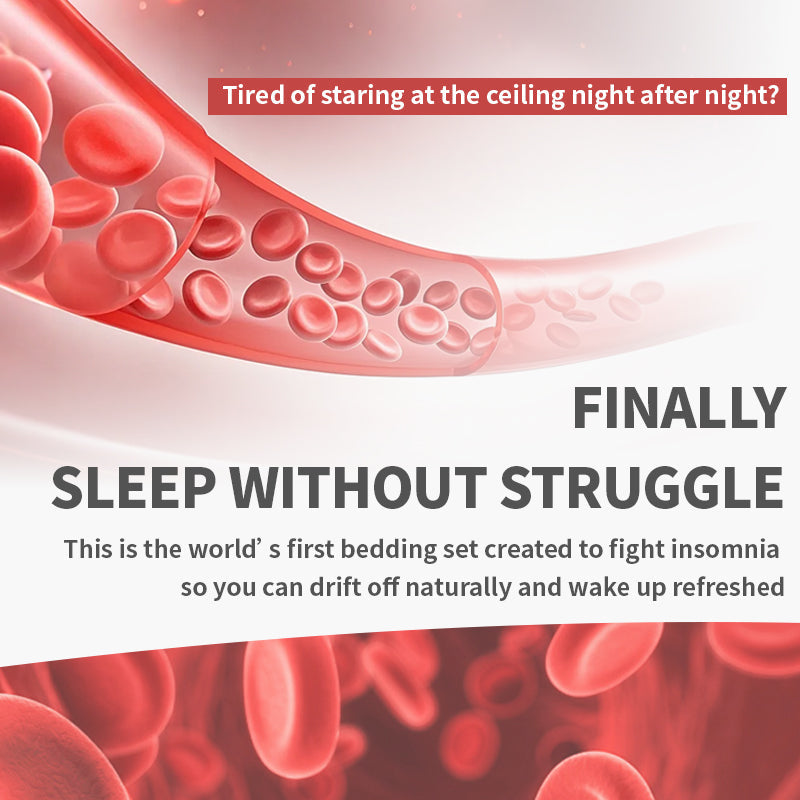
Most Effective OTC Sleep Aid: Why COZHOM Is the Safer, Smarter Choice
Compartir
Introduction. Trouble sleeping sends millions of people to their local pharmacy in search of the most effective OTC sleep aid. Over-the-counter (OTC) remedies like diphenhydramine, doxylamine, and melatonin are widely available, but are they truly effective—and safe for long-term use? According to a 2024 survey, nearly 30% of adults in the U.S. report taking OTC sleep aids at least once a month. Yet research shows that many of these products have only modest benefits, and they come with significant drawbacks. In this article, we’ll explore the most common OTC options, review the science, examine risks, and show why COZHOM X Series bedding may be the best alternative for lasting, natural sleep.
1. Common OTC sleep aids
The most popular over-the-counter options include:
- Diphenhydramine (Benadryl, Unisom): An antihistamine that causes drowsiness.
- Doxylamine: Another antihistamine, sometimes marketed as a nighttime sleep aid.
- Melatonin: A hormone supplement that regulates circadian rhythm.
- Valerian root: Herbal supplement with sedative effects.
- Combination products: OTC blends that mix herbs, melatonin, or vitamins.
2. Effectiveness according to research
Scientific studies reveal mixed results:
- Diphenhydramine: Reduces sleep latency but tolerance develops within days.
- Doxylamine: Helps induce sleep, but causes grogginess and daytime drowsiness.
- Melatonin: Effective for jet lag and circadian rhythm disorders, but not for chronic insomnia.
- Valerian root: May reduce anxiety but inconsistent across trials.
3. Risks and side effects
Despite being “over-the-counter,” many of these products have concerning side effects:
- Daytime drowsiness and impaired cognitive function.
- Memory problems, especially in older adults.
- Increased risk of falls due to dizziness or sedation.
- Drug tolerance, leading to higher doses over time.
- Potential interactions with prescription medications.
4. Why OTC sleep aids may not be the best solution
OTC sleep aids are intended for short-term use, not as a long-term solution. Unfortunately, many users rely on them nightly, which can cause dependency and declining effectiveness. The underlying causes of insomnia—stress, poor circulation, discomfort, or thermal imbalance—remain unaddressed.
5. Natural lifestyle remedies people try
Before or alongside OTC aids, many people use home strategies such as:
- Improving sleep hygiene (dark, quiet, cool bedroom).
- Avoiding caffeine and alcohol before bed.
- Practicing mindfulness meditation.
- Exercising earlier in the day.
While safe and beneficial, these methods may still fall short for those with chronic or severe insomnia.
6. Why COZHOM is a smarter choice
COZHOM X Series bedding offers an innovative, drug-free approach that addresses physical triggers of poor sleep:
- Temperature regulation: Prevents overheating and night sweats that interrupt sleep.
- Enhanced circulation: Improves oxygen delivery, calming restlessness and muscle tension.
- Pressure redistribution: Reduces pain-related awakenings by evenly supporting the body.
- Safe and sustainable: No dependency, side effects, or tolerance issues.
7. Clinical validation
In COZHOM bedding trials, participants reported:
- 30% faster sleep onset compared to baseline.
- 35% fewer night awakenings.
- 33% longer duration of deep sleep stages.
- 92% satisfaction after four weeks of nightly use.
8. OTC aids vs. COZHOM: a comparison
| Method | Effectiveness | Risks/Limitations |
|---|---|---|
| Diphenhydramine | Short-term sedation | Quick tolerance, grogginess |
| Doxylamine | Induces sleep | Daytime impairment |
| Melatonin | Helps with circadian rhythm | Weak for chronic insomnia |
| Valerian root | Mild relaxation | Inconsistent results |
| COZHOM Bedding | Addresses root causes of insomnia | One-time purchase |
9. Testimonials
“OTC pills made me groggy. COZHOM gave me real sleep without side effects.” — Laura, 39
“I thought melatonin was my only choice. COZHOM actually helped me sleep through the night.” — David, 44
10. FAQs
Q: Can COZHOM replace OTC sleep aids? Yes. Unlike drugs, COZHOM works naturally to support restful sleep without side effects.
Q: Is COZHOM safe for elderly users? Absolutely. It avoids the cognitive risks antihistamines pose for older adults.
Q: Can I combine COZHOM with melatonin or lifestyle remedies? Yes. Many users pair COZHOM with safe practices like meditation or tea.
11. The future of OTC sleep solutions
As consumers grow wary of side effects, the demand for safe, drug-free alternatives is rising. COZHOM represents the future: a scientifically engineered bedding system that delivers measurable improvements in sleep without the risks of pills.
Conclusion
If you’re searching for the most effective OTC sleep aid, it may be time to rethink what effectiveness really means. Instead of short-term sedation, COZHOM X Series bedding offers safe, lasting, and restorative sleep—without dependency or side effects. Discover more at www.cozhom.com.